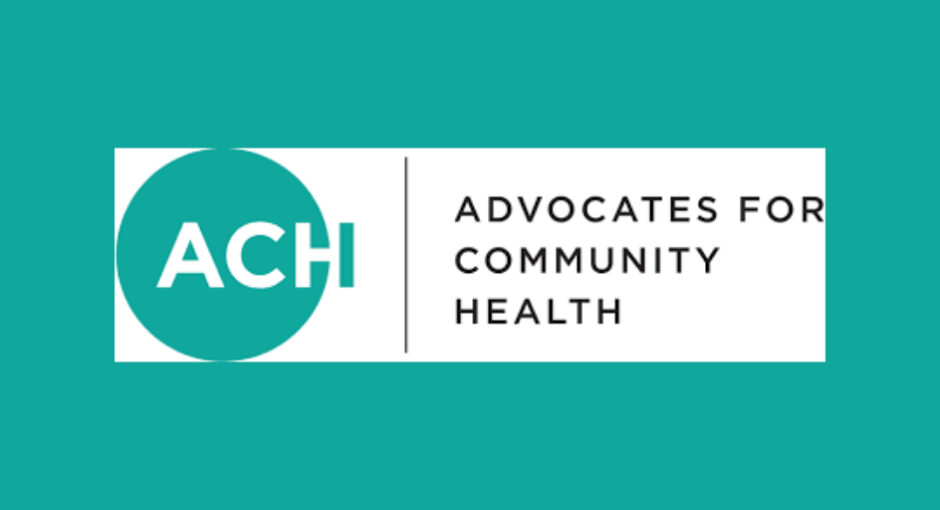A national community health center association founded last year is launching a campaign to urge Congress to create a separate drug discount program called 340C open to health centers and perhaps rural hospitals and federal grantees.
According to a description of draft legislation, in exchange for reinvesting 340C drug discount revenues “into program operations, patient care, and other appropriate and beneficial activities, as determined by the covered entity leadership, to the populations served” and being subject to audits, 340C entities would be entitled to:
- reimbursement at wholesale acquisition cost for all Medicaid drugs
- protection against discriminatory network and reimbursement actions by health insurers and pharmacy benefit managers
- use of contract pharmacies as necessary.
The effort is spearheaded by the group Advocates for Community Health (ACH), which launched in June 2021 with nine members. It does not disclose its current membership, a spokesperson said. Sources say ACH’s membership is growing.
An ACH 340C one-pager refers to “federally qualified health centers, rural hospitals, and recipients of federal grant dollars” as entities that rely on the 340B program. ACH 340C talking points refer to health centers only, however.
ACH is separate from and unaffiliated with the National Association of Community Health Centers (NACHC), which has about 900 members. NACHC last month said Congress needs “to move urgently to protect and strengthen the 340B program” from drug manufacturers’ denials of 340B pricing when covered entities use contract pharmacies.
ACH CEO Amanda Pears Kelly said this morning, “We are guided by the needs of the millions of patients our members serve every day, as well as the 30 million patients FQHCs across the country serve annually. 340B makes it possible for FQHCs to offer comprehensive, equitable care to those patients—90% of whom live at or below 200% of the federal poverty level. But, the 340B program is at grave risk. That is why we are open to exploring all potential options to save the program our patients rely on. We look forward to working collaboratively with all stakeholders in the space on a solution that works for health centers and our patients.”
Historic Changes Possible
If the push to establish 340C succeeds, it would be the greatest structural change to the 340B program since 2010, when four types of hospitals gained eligibility for 340B discounts and the federal government clarified that covered entities could contract with multiple outside pharmacies to dispense covered outpatient drugs to patients.
The rebellion by 18 drug manufacturers against 340B contract pharmacies has strained the finances of all types of covered entities. However, some health center leaders say privately they are tired of being collateral damage in a war over 340B that they think is mainly between drug companies and large health systems.
Sixteen types of health care providers qualify for 340B discounts. Disproportionate share (DSH) hospitals are by far the largest purchasers of 340B-priced drugs ($34.2 billion in 2021 and 78% of 340B sales). Consolidated health center programs are the second-largest ($2.2 billion and 5%) followed close behind by Ryan White HIV/AIDS program grantees ($2.1 billion and also 5%).
Despite their differences, the 16 covered entity types have almost always demonstrated solidarity in public—especially when 340B is confronted with danger. The call for a drug discount program for health centers and possibly rural hospitals and grantee entities is a break with that tradition. It likely will jolt 340B DSH hospitals. It might be embraced by the drug industry. Until recently, manufacturers and their allies have tended to anoint 340B health centers, small rural hospitals, and grantee entities as “good actors.” How Congress and the Biden administration will respond is unknown.
340C Details
An ACH one-pager and talking points describing the proposed 340C program in broad terms have begun circulating among individuals involved in 340B. They refer to a draft bill, but the draft itself has not been released.
The one-pager and talking points say 340B is being eroded by state policymakers, pharmaceutical companies, pharmacy benefit managers, and bad actors within the program.
“The time is long overdue for reform of the program, but it must be achieved without destabilizing our country’s safety net,” the one-pager continues. “Federal reform of the 340B program should hold entities accountable for the use of their 340B savings, and entities should be required to maintain auditable records to document compliance. As entities commit to these important accountability standards, Congress should ensure that the program is fully benefitting those entities.”
The one-pager says the 340C draft bill “maintains key provisions of the original 340B program, including the prime vendor, certification processes, and a prohibition on resale of drugs. It provides HRSA regulatory authority to implement the legislation and authorizes appropriations in such sums as necessary.”
In a post in its blog Monday, ACH said, “There is no defensible reason to sweep FQHCs into the ‘reform’ of the 340B program, particularly given that health centers are already required to reinvest any program revenue into patient services. Health centers are held accountable to that standard by both their community-led boards and the HRSA.”
“ACH is advocating with key stakeholders and Hill offices at the forefront of 340B reform, those who have expressed support for health centers, and key leaders in a position to influence the future of the 340B program,” the blog post continued. “We welcome an opportunity to work with all of you to do the same, and to do targeted advocacy outreach on the Hill. We must ensure health centers and the patients they serve are protected as the 340B program will undoubtedly evolve.”


